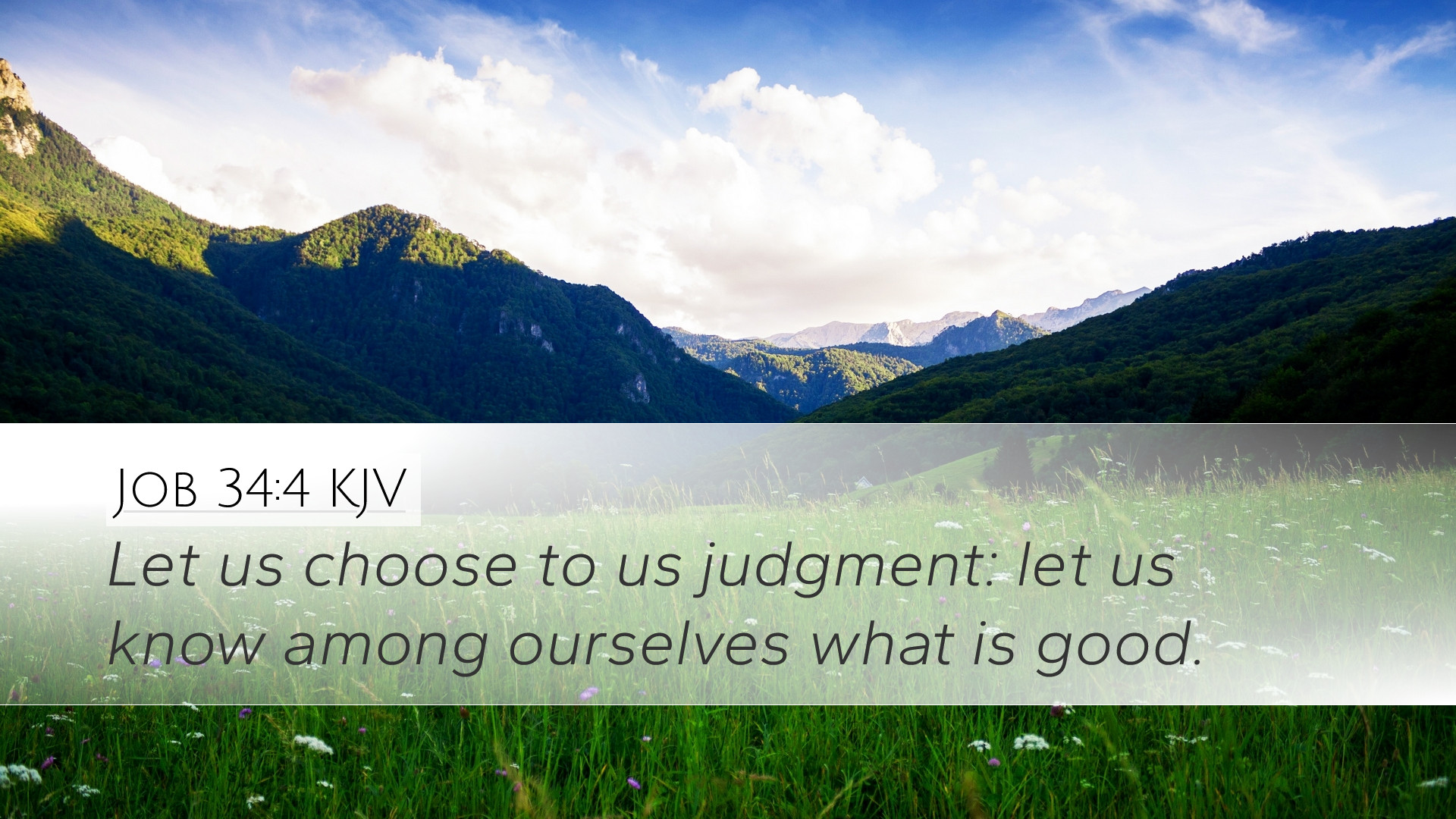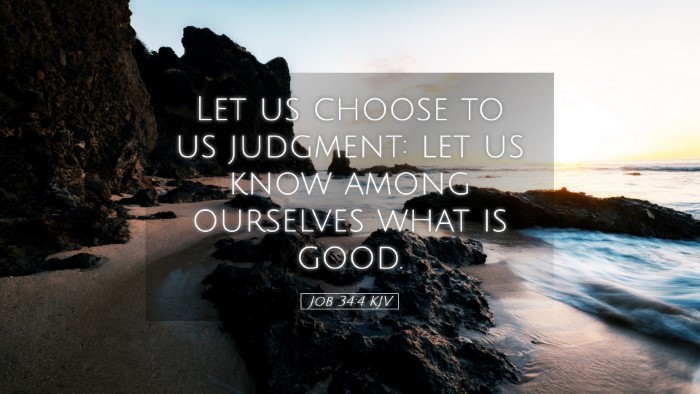Commentary on Job 34:4
Job 34:4 states: "Let us choose to us judgment: let us know among ourselves what is good." This verse serves as a pivotal point in the discourse of Job, as it reveals the need for discernment in the midst of suffering and maintains the theme of seeking divine justice.
Introduction
This verse is spoken by Elihu, who offers a perspective that seeks to clarify God’s nature and His dealings with mankind. Elihu is unique in his address, embodying a theological voice that demands attention from both the friends of Job and Job himself.
Theological Implications
Elihu’s approach in this passage highlights several theological implications:
- Divine Justice: The assertion to "choose judgment" implies that humans possess the capacity—indeed, a responsibility—to discern right from wrong based upon God’s ordinances.
- Active Participation: The call to "know among ourselves what is good" emphasizes that understanding goodness and righteousness not only comes from divine revelation but also through communal discernment and discussion.
- God’s Sovereignty: Elihu implicitly underlines the sovereignty of God over human affairs, calling upon Job and his friends to recognize God’s ultimate authority in matters of morality and justice.
Insights from Public Domain Commentaries
Matthew Henry
Matthew Henry observes that Elihu's request for a choice to be made indicates a thoughtful engagement with moral choices. He emphasizes the significance of understanding judgment: "To choose judgment is both our duty and our privilege." Henry encourages the audience to examine their own hearts and to engage in self-reflection about moral choices in their lives.
Albert Barnes
Albert Barnes elaborates on the idea of discernment in this verse, indicating that "the essence of religion involves discovering what is right in God's eyes." He asserts that our ability to identify what is good should stem from scripture and divine guidance, suggesting that the reference to judgment involves understanding God's law and applying it in one's life. Barnes underscores the community aspect of this discernment, promoting collaboration in upholding divine principles.
Adam Clarke
Adam Clarke puts forth an interesting interpretation of the phrase "choose to us judgment." He posits that Elihu challenges Job to invoke a rational process in understanding his afflictions. Clarke notes that this rationality must be grounded in knowledge and spiritual insight, emphasizing that "goodness transcends personal suffering and must be seen in the context of God's overarching plan for humanity." He affirms the necessity of arriving at truths through contemplation and discussion.
Practical Applications
The exhortation in Job 34:4 has significant applications for believers today:
- Encouragement for Discernment: In a world of moral ambiguity, believers are called to actively engage in discerning the will of God through scripture, prayer, and dialogue with others.
- Community of Faith: This verse emphasizes the importance of community in ascertaining truth. Churches and study groups can work together to achieve a clearer understanding of God’s principles.
- Understanding Suffering: Job’s plight teaches that suffering can often cloud judgment. The call to "choose judgment" serves as a reminder to seek clarity in times of distress, trusting in God’s justice.
Conclusion
Job 34:4 is a profound reminder that humanity must engage with the divine in understanding justice and goodness. As Elihu calls for mutual discernment, it resonates with the need for community, scriptural engagement, and reliance on God's wisdom in a complex world. For pastors, theologians, and students of the Bible, this verse challenges them to reflect on how they make moral and spiritual decisions, encouraging continued exploration of God’s character and purpose throughout their lives and ministries.


